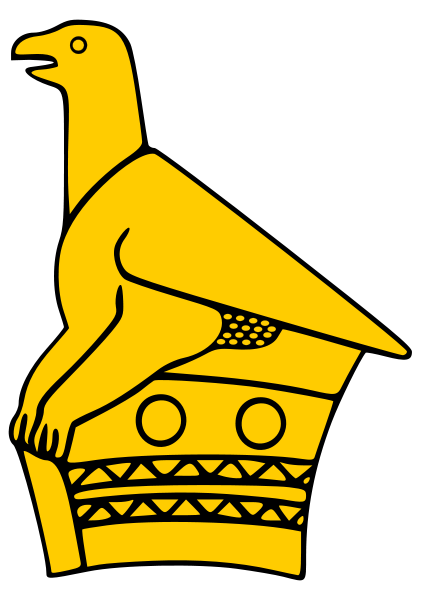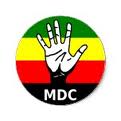Pioneer Days
Who were the main white commanders?
Nominally Surveyor-General Duncan was in charge for the early days of the war in Bulawayo and he formed a Council for War that luckily for the citizens contained a number of able officers. Since they feature so prominently in the story of 1896 Matabeleland, we will give a bit of biographical information on each.
- Colonel Napier
- Appointed as Officer Commanding troops in Matabeleland, he was a likable man. One of his friends referred to him thus: "he is not beautiful but has a keen powerful face and reddish moustache". Napier was part of the syndicate that built Hillside Dams.
- Colonel John Spreckley
- Commander of the Bulawayo Field Force. Spreckley arrived in southern Africa in 1881 and spent a great deal of time working as a gold prospector alongside men such as Heaney, Borrow and Johnson, before joining the 1890 Column. Hole (1928: 67-68) paints a picture of a likable rogue, calling him a "jolly, impetuous… fellow with an irresistible tendency to practical joking". He was also involved in the construction of Hillside Dams. Baden-Powell (1897) liked him immensely, and wrote that he considered Spreckley "an ass because he did not take up soldiering as his profession instead of gold and wandering". He died fighting in the Second Boer War in 1900.
- Captain George Grey
- Leader of Grey's Scouts. Cousin to the Administrator of Rhodesia, Earl Grey, George Grey was in Matabeleland by chance visit when the war began and immediately made an impression on the old hands. Selous (1896) wrote glowingly, "I think we all regard Captain Grey as one of the finest specimens of an Englishman in the country - quiet, self-contained and unassuming, but at the same time, brave, capable and energetic". In 1899 he was given command of an expedition to prospect in the Katanga area (Zambia) and was responsible for locating a large amount of the copper deposits there. He was killed by a lion in East Africa in 1911.
- Captain Frederick Courtenay Selous
- A man who needs little introduction in Zimbabwe's history, Selous was another man who was back in Matabeleland by chance as the war started. He became intimately involved with many incidents during the war, leading several rescue patrols, scouting for the army and finally assuming responsibility for the Mangwe road to the south. Selous left us one of the most influential and complete accounts of events during 1896 in the form of his book Sunshine and Storm. He left Rhodesia in 1896, having lost everything he owned during the war. He later worked as both a guide and hunter for expeditions as well as collecting specimens for museums around the world. He was killed in action during WWI in Tanzania as the age of 65. His epitaph is one of the most evocative "… and his bones still lie, enriching the soil of Africa".
- Captain Ronald 'Mickey' Macfarlane
- Having learned his soldiering in the 9th Lancers, Macfarlane was once described by J.G. Macdonald as "the last of the dandies". He resigned his commission and came out to Rhodesia and worked as, among other things, Secretary of the Bulawayo Club, having retired from the Army. Ransford (1968: 85-86) claims that the "Army's loss was Bulawayo's gain, for this bearded officer with the piratical air and a hard instinctive fondness for fighting became the backbone of its defence… never a bad word is said about Captain Macfarlane".
- Captain Maurice Gifford
- Commander, Gifford's Horse. Son of Lord Gifford, he had spent some time as a soldier around the world, before coming to Africa as manager of the Bechuanaland Exploration Company Ltd. searching for gold. Running a regular coach service from Palapye to Salisbury, Gifford served as a scout in the 1893 Anglo-Matabele war before raising and commanding Gifford's horse in 1896. He was present at the relief of Mafeking during the Second Boer War and died in 1910.
- Cecil Rhodes
- Mining magnate, colonial sympathizer and gazetted colonel for the period of the 1896 war, Rhodes by this stage was in disgrace having resigned his major commitments in politics and commerce in the aftermath of the Jameson Raid. The war was to provide him with his finest hour in addition to providing the necessary inspiration for choosing his visionary burial place. Rhodes died in 1902 in Cape Town.
Sourced from the Zanj Financial Network 'Zfn', Harare, Zimbabwe, email briefing dated 28 March 2011


 South Devon Sound Radio
South Devon Sound Radio Museum of hp Calculators
Museum of hp Calculators Apollo Flight Journal
Apollo Flight Journal Apollo Lunar Surface Journal
Apollo Lunar Surface Journal Cloudy Nights Classic Telescopes
Cloudy Nights Classic Telescopes The Savanna - Saffer Shops in London
The Savanna - Saffer Shops in London Linux Mint
Linux Mint Movement for Democratic Change
Movement for Democratic Change